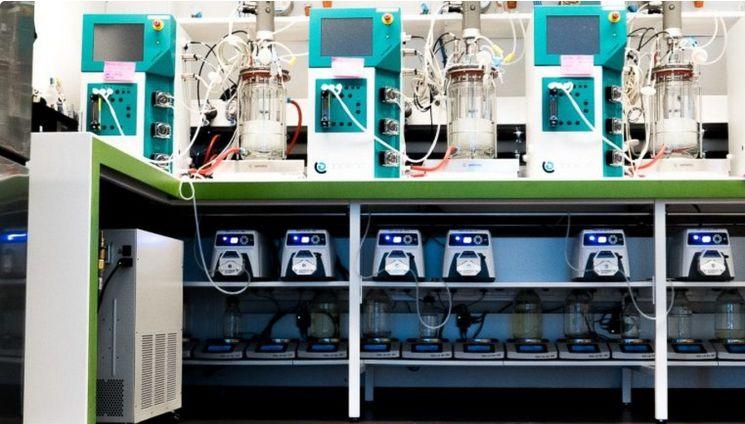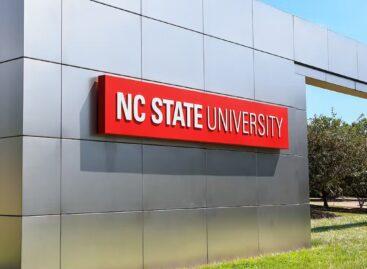FrieslandCampina Ingredients expands beyond traditional dairy with microbial fermentation collaboration
FrieslandCampina Ingredients is harnessing Triplebar Bio’s specialized biotechnology capabilities to develop and scale up the production of cell-based proteins via precision fermentation. The alliance aims to develop innovative alternative protein solutions that improve human health, target infant nutrition and reduce reliance on traditional protein sources.

“The potential of precision fermentation is huge,” Anne Peter Lindeboom, managing director innovation at FrieslandCampina tells. “We need more sources of high-quality proteins to meet the needs of a growing and aging population. By offering a full range of dairy and alternative proteins side by side, we aim to give our customers access to the nutritional solutions they need for their consumers so that everyone can get the most out of life, always.”
Complementing traditional dairy
Peter Lindeboom explains that dairy ingredients will continue to play a “vital role” in the future of nutrition as a source of high-quality proteins and prebiotics.
At the same time, Peter Lindeboom notes that FrieslandCampina is continuously exploring new ways to harness technology and nature to support consumers with special dietary needs, and address problems such as formula shortages.
Microbial cells production
The two companies will produce microbial cells through precision fermentation. The microbial cells can support human health and nutrition in early life and adulthood.
According to the company, food security is getting worse, with baby formula shortages, tightening supply chains, drought and global instability that will only intensify the growing nutritional scarcity.
Triplebar will bring to the table its integrated approach, which uses hardware, software, biology and biochemistry to develop new products and biological production systems that can replicate and accelerate evolution found in nature.
Cutting emissions
FrieslandCampina aims to produce completely climate-neutral dairy by 2050. They will target that goal while keeping traditional dairy at the center of their offering.
“The biggest contribution to our company’s climate goals will come from farm-level reductions,” – he highlights.
At the same time, the company “will strive for sustainable production and the lowest possible emissions for the alternative, non-dairy ingredients in our portfolio,” according to Peter Lindeboom.
The alliance seeks to develop innovative alternative protein solutions that reduce reliance on traditional protein sources.
“Proteins from precision fermentation will make up a portion of our non-dairy protein portfolio. Our goal is for these proteins to use less land and water and generate fewer emissions compared to some animal-derived proteins for the same value of protein,” he underscores.
Precision fermentation boom
FrieslandCampina started using precision fermentation in 2016 to produce human milk oligosaccharides. Since then, the food industry’s use of technology has flourished.
2022 saw conventional dairy players, such as Bel Group, expanding beyond traditional cheese offerings and investing in scaling precision fermentation technologies – harnessing microbes’ power to produce whey and casein. The same process has been used to develop authentic dairy-based ice cream and milk chocolate without the cow.
Last week, Danisharoma company EvodiaBio secured US$6.4 million in a capital raise as part of its strategy to become a key global industry player in sustainable aroma production for the food and beverage industry.
The company recently introduced a technology platform that uses precision fermentation to produce sustainable aromas.
Meanwhile, seeking the potential to boost sustainability, start-ups are turning to precision fermentation to create an alternative to unsustainable palm oil.
Related news
Danone aiming to scale up precision fermentation with aid of partners
The Activia brand owner hopes its newly-announced project will aid…
Read more >Bezos Earth Fund Opens Sustainable Protein Centre In North Carolina
The Bezos Earth Fund is confident that its new Bezos…
Read more >Unilever teams up with Perfect Day to develop lactose-free ice cream
The product will be sold under Unilever’s Breyers brand at…
Read more >Related news
The Joy of Giving! – SPAR stores collect non-perishable food for people in need
The Hungarian Maltese Charity Service and SPAR Hungary have launched…
Read more >Technological advancements and business travel
The latest research from International Workplace Group (IWG), the leading…
Read more >K&H: a gift, but what and from which store?
When it comes to Christmas gift-giving, clothes are the most…
Read more >








